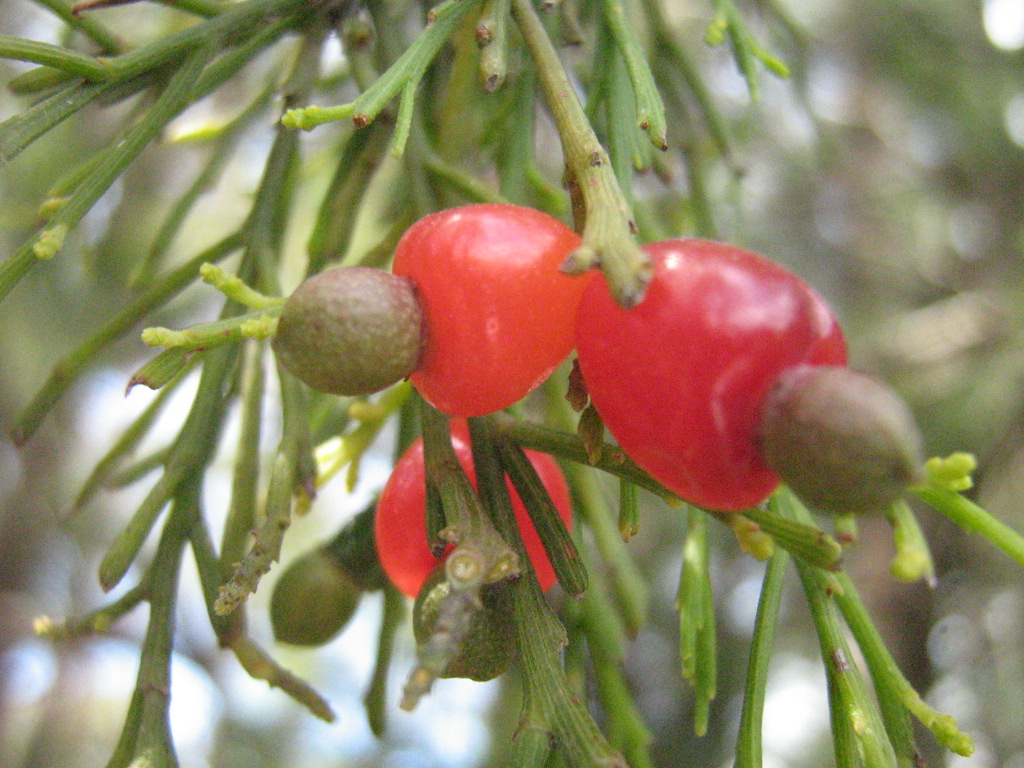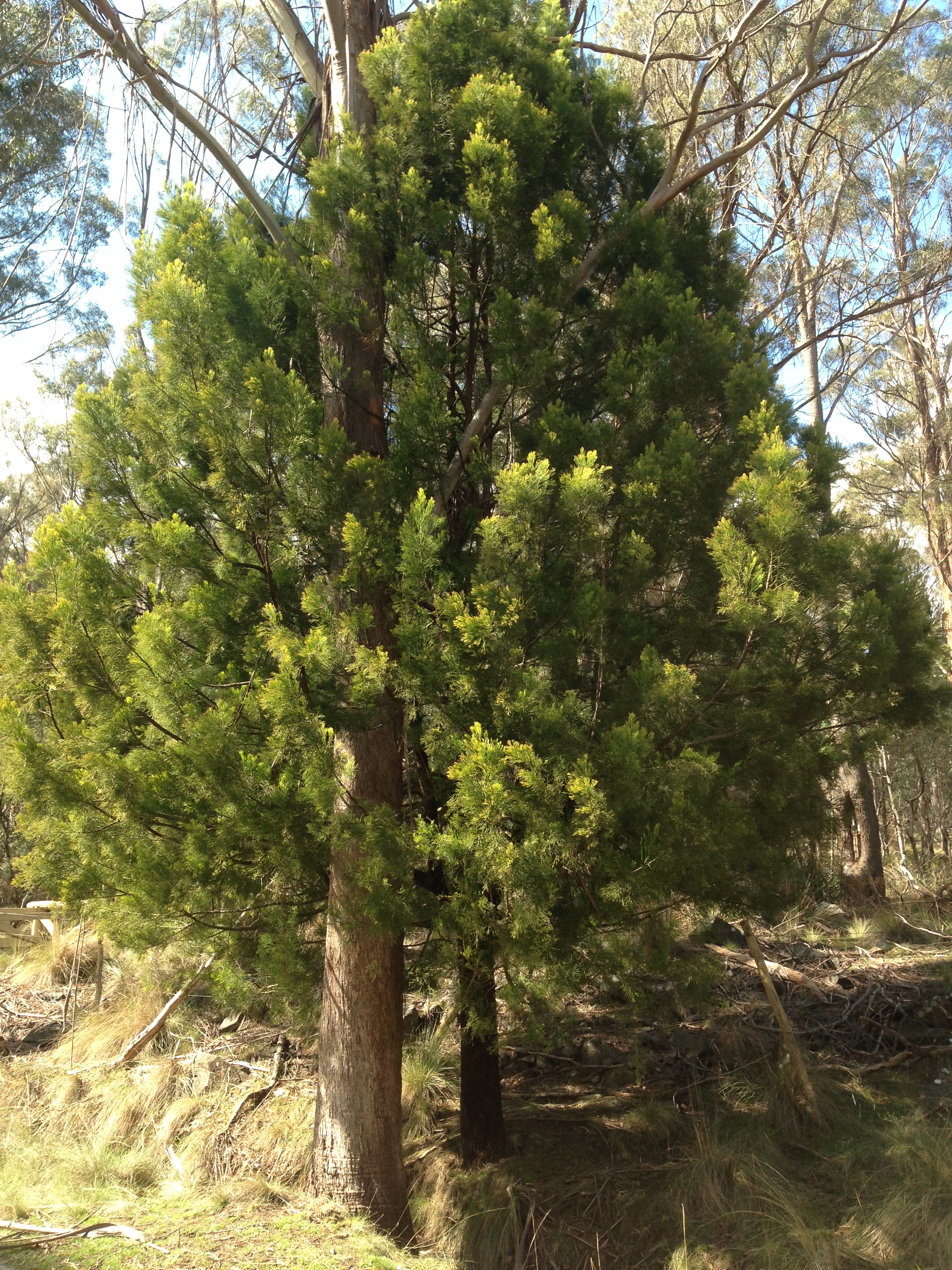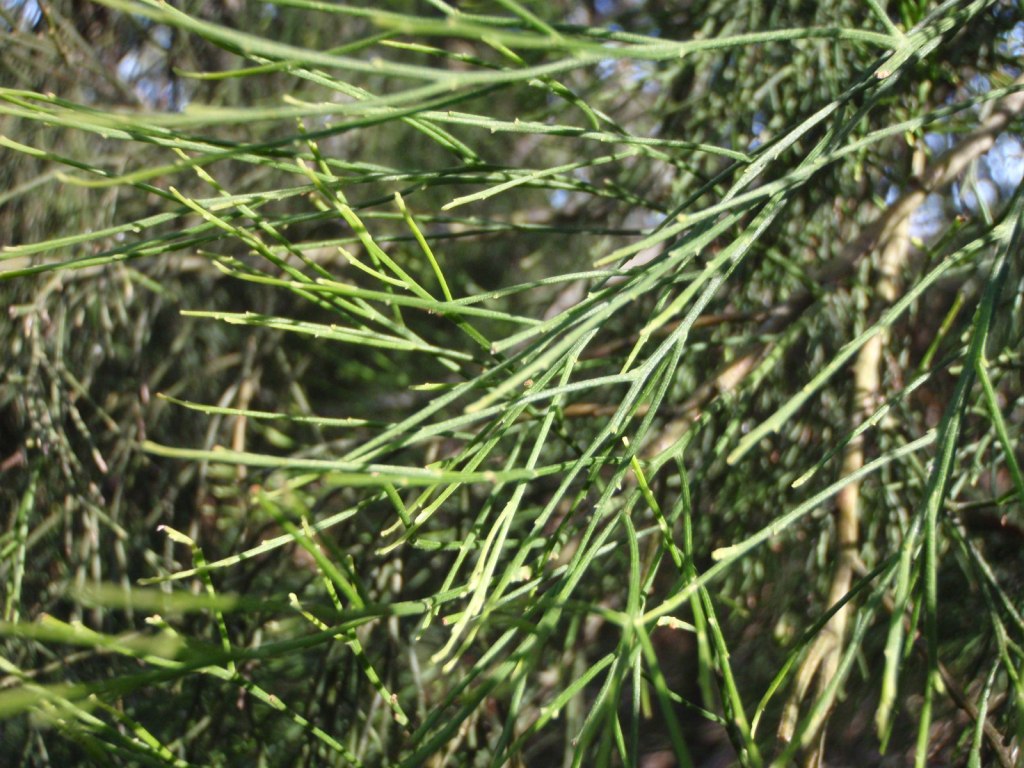Scientific Name: Exocarpos cupressiformis
Common Name: common native-cherry
Family Classification (Clade): Eudicots
Family: Santalaceae
Form Description: Small pine-like tree; brown-ridged bark; dense fine yellow-green branches.
Height (m): 3 – 8
Flowers: Insignificant cream flowers; clustered on short stems towards ends of branches.
Fruit: Nut – ripe fruit base is fleshy, red and edible; nut sits on top. Green nut has thin outer shell (contains 1 seed).
Municipality
Plant Communities
Habitat Notes
Common. Widespread in light forests. Often in dry rocky sites in eucalyptus woodlands in the east.
Site Tolerance
Dry
Soil Tolerance
Fertile, Nutrient-poor, Well-drained
Frost Tolerance
Hardy
General Notes
Parasite on roots of nearby plants; requires host species for successful growth. Some growers recommend potting on seedlings with a native grass to act as host; others state seedlings should be planted out where Casuarinaceae, Fabaceae, Myrtaceae or Proteaceae family are growing. One successful method from seed is feeding to hens, extracting from droppings, and sowing with Themeda triandra (kangaroo grass). Difficult to propagate and grow, probably due to its parasitic nature. Tolerates shallow soils. High flammability. Resistant to Phytophthora cinnamomi.
Propagation Calendar
-
Flowering Month
Jan Feb Mar Apr May Jun Jul Aug Sep Oct Nov Dec -
Seed Collecting Month
Jan Feb Mar Apr May Jun Jul Aug Sep Oct Nov Dec -
Sowing Month
Jan Feb Mar Apr May Jun Jul Aug Sep Oct Nov Dec -
Cutting Month
Jan Feb Mar Apr May Jun Jul Aug Sep Oct Nov Dec
Propagation Method
Seed Information
Seed Collection
Difficult to grow from seed. Few flowers mature to fruit. Nut becomes hard; releases easily when ripe. Harvest fruits individually by hand.
Seed Treatment Notes
Bird ingested seed has good levels of germination.
Germination Time
6-18 months
Cutting & Division Information
Difficult to grow from cuttings. Jam a sharp spade into soil at intervals around individual trees. This will cut roots and cause suckering. Pieces of these roots and suckers can then be transplanted. Or, cuttings 8cm long from juvenile foliage, placed in container with host (established plant or cutting of species which strikes easily and is small or slow-growing). “Cuttings from vigorous new young growth (e.g. post bushfire) strike well on mist and heat. Potting on with grasses not suitable (grasses too aggressive in growth). Success potting on with less vigorous ground covers (even this may not be required). Plants slow but grow well once planted out.” – Will Fletcher.


